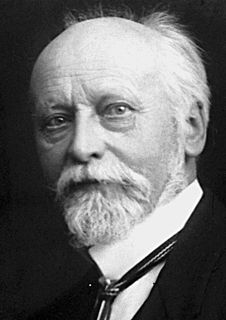A Quote by Ludwig Quidde
The popular, and one may say naive, idea is that peace can be secured by disarmament and that disarmament must therefore precede the attainment of absolute security and lasting peace.
Quote Topics
Related Quotes
Some might complain that nuclear disarmament is little more than a dream. But that ignores the very tangible benefits disarmament would bring for all humankind. Its success would strengthen international peace and security. It would free up vast and much-needed resources for social and economic development. It would advance the rule of law.
I am for lasting peace... United, I believe, we can win the battle for peace. But it must be a different peace, one with full recognition of the rights of the Jews in their one and only land: peace with security for generations and peace with a united Jerusalem as the eternal, undivided capital of the Jewish people in the state of Israel forever.
Bring the absolute power to destroy other nations under the absolute control of all nations. Weapons of war must be abolished before they abolish us...No longer is the quest for disarmament a sign of weakness, (nor) the destruction of arms a dream - it is a practical matter of life or death. The risks inherent in disarmament pale in comparison to the risks inherent in an unlimited arms race.
Do not hide behind utopian logic which says that until we have the perfect security environment, nuclear disarmament cannot proceed. This is old-think. This is the mentality of the Cold War era. We must face the realities of the 21st century. The Conference on Disarmament can be a driving force for building a safer world and a better future.
Unlike South Africa, which decided on its own to eliminate its nuclear weapons and welcomed inspection as a means of creating confidence in its disarmament, Iraq appears not to have come to a genuine acceptance - not even today - of the disarmament, which was demanded of it and which it needs to carry out to win the confidence of the world and to live in peace.





























